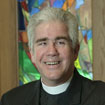Commentary on Psalm 16
A Response to the First Reading
In the First Reading, when Elijah threw his mantle over Elisha to call him, Elisha, who is plowing twelve yoke of oxen, slaughtered his oxen, used the plow to cook them up, fed them to the people, kissed his parents goodbye, and followed the prophet as his servant (1 Kings 19:19-21). Elisha cannot return to his old life. As a response to this reading, Psalm 16, in which the psalmist entrusts his whole life to God–calling God his “refuge” and “good above all other” (16:1)–“is an intense, loving, joyful confession of trust” that makes the drastic action displayed by Elisha possible.i
Trust as a Way of Acting and Living
Obviously, since this is a psalm, we are talking about trust in God. We are talking about faith. The psalmist makes it clear that trust in God is not a right belief, a warm feeling, or an impulse in times of trouble. Trust is a way of acting and living that opens the self to God as the most important reality in life. We do not take drastic action because we necessarily feel trust; our actions are a way of maintaining or cultivating our trust in God.
Cultivating Trust in God
“I keep the LORD always before me,” the psalmist declares, “because he is at my right hand, I shall not be moved” (16:8). The psalmist concentrates on the Lord; God is the focus of his undivided attention. Through the act of praise that is this psalm, the psalmist is so aware of God’s presence, power, and love that he is not distracted or unsettled by other things. As the psalmist praises God, his heart is glad. His spirit rejoices. His body rests in hope (16:9). He is open to the LORD’S counsel, which comes to his heart night after night (16:7).
A few years ago, I spent considerable time in conversation with students who wanted to do away with the title LORD for God, because they found it hierarchical. So I notice in this particular scripture that the psalmist calls or refers to God as LORD five times and I wonder what to make of it. Since the psalmist knows God as LORD, the psalmist also understands himself as servant. The psalmist understands that he is not the master of his own destiny. The psalmist’s life does not rest in his own hands; he belongs to another. Moreover, the psalmist only has one Lord (16:3-4). In the language of the psalm, the psalmist only worships one God and does not “run after other gods” (16:3) or participate in their worship.
Since God is the psalmist’s LORD, the psalmist receives all the good things that come his way as coming from God. The language of verses 5-6—portion, cup, boundaries, pleasant land, rich inheritance—evoke the Promised Land and God’s salvation of Israel. The good things in life the psalmist receives are for the psalmist reflections and tokens of his destiny with God.
According to Psalm 16, we cultivate trust in God by keeping God as the focus of our undivided attention, worshiping God, being attentive to God’s counsel, recognizing God as our one and only LORD, and receiving good things as coming from God as tokens of our destiny in God. Cultivating trust in God by living and acting in these ways, we may find ourselves responding to God’s call as Elisha did — no turning back.
Trust that Flows from the Gospel
But there is more! In the appointed Gospel reading, Luke tells us that, while making his way to Jerusalem, Jesus said to someone, “Follow me.” That person responded, “Lord, first let me go and bury my father.” But Jesus said to him, “Let the dead bury their own dead; but as for you, go and proclaim the kingdom of God.” Another said, “I will follow you, Lord; but let me first say farewell to those at my home.” Jesus said to him, “No one who puts a hand to the plow and looks back is fit for the kingdom of God” (Luke 9:59-62). It strikes me that these two potential followers only wanted to do what Elisha did, and that Jesus demands even more drastic action and even deeper trust.
In Acts (2:24-32; 13:34), Peter and Paul use Psalm 16:10 to proclaim that Jesus Christ, raised from the dead, makes it possible for us to pray the psalm with a level of trust that matches the psalm’s claims. In Christ we can pray with trust and confidence, “For you do not give me up to Sheol, or let your faithful one see the Pit.” In Christ we will not cease to exist. Even more, we will not lose the gift of God’s presence and the joys that come from being in God’s presence. The love of God revealed in Christ Jesus inspires the kind of trust so wonderfully described by the psalmist: “You show me the path of life. In your presence there is fullness of joy; in your right hand are pleasures forevermore (16:11).
Preaching Psalm 16
Rather than calling people to respond like Elisha or, even more, in the ways that the ones Jesus called could not, Psalm 16 invites the preacher to overwhelm the congregation with the good news that, in Christ, God does not abandon us to the grave but shows us the path of life in God’s presence. Only then can the preacher help the congregation to emulate the psalmist in undertaking practices that cultivate the trust that flows from this good news.
iKonrad Schaefer, David W. Cotter, Jerome T. Walsh, Chris Franke, Psalms (Collegeville, MN: Liturgical Press, 2001), 37.

June 27, 2010